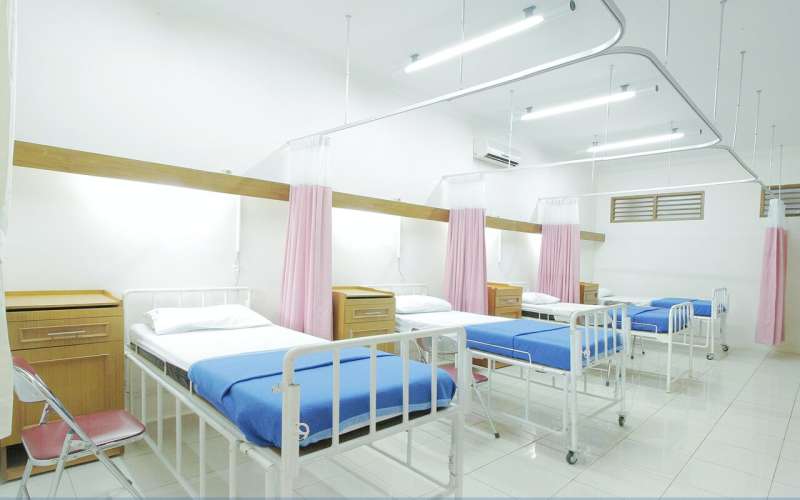This article has been reviewed according to Science X's editorial process and policies. Editors have highlighted the following attributes while ensuring the content's credibility:
fact-checked
trusted source
proofread
Nursing homes have advantages for older patients, finds researcher

A community hospital model can enable better adapted inpatient care for older patients, while relieving the burden on regular hospitals that can focus on patients where they are best suited. This is shown in a dissertation by Mante Hedman, Umeå University.
Multimorbid and frail elderly patients with infections or worsening chronic diseases are often cared for in overcrowded large hospitals. Despite the increasing proportion of elderly people in the population, the number of hospital beds has been declining for several decades.
Although the work with "Good and Close Care" strives for patient-centered care, especially by strengthening primary care, there is a lack of adaptation for hospital care. Community hospital patients in rural parts of Northern Sweden are the oldest people, having the elderly patients' diagnoses. At the same time, patients in need of emergency care, post-operative rehabilitation or end-of-life care can be seen on the ward.
Proximity and patient knowledge
Community hospitals have fewer diagnostic facilities than general hospitals and carry out fewer radiological examinations and blood tests compared to general hospitals.
"We see that most patients who need hospital care are referred to the nearest general hospital, but that the rural general practitioners choose to keep and care for elderly and multi-sick patients in a community hospital, when they feel that they can offer patient-safe care.
"In interviews, they describe that proximity, patient knowledge from outpatient care and a holistic perspective on the patient can be seen as advantages for community hospitals compared to general hospitals in the care of elderly patients with multiple illnesses," says Mante Hedman, Department of Public Health and Clinical Medicine.
Similarities with New Zealand
The district doctors also emphasized the central role their community hospitals play in the patients' care chain, with continuity with primary care and close contact with general hospitals and municipal care. The doctors experienced the work as varied and developing but were frustrated by vacancy situations and dependency on temporary staff.
"There were also ethical challenges specific to rural care, such as being a doctor for friends and relatives, or being forced to prioritize which patient gets to go in the only local ambulance, who is then away for many hours. It is interesting that similar aspects were also reported in our interviews by doctors at the equivalent of community hospitals in New Zealand, rural hospitals," says Mante Hedman.
Mante Hedman was born and raised in Västerbotten and has previously worked as a teacher before becoming a doctor. He has studied in Umeå, works as a rural general practitioner in Storuman and before that in Umeå and Västernorrland. Mante is also an adjunct lecturer at the medical program in Umeå. For many years, he has collaborated with the Center for Rural Medicine in Storuman.
On Friday 1 March, Mante Hedman, Department of Public Health and Clinical Medicine at Umeå University, defended his thesis, titled "The Community Hospital Model in Northern Sweden."
More information: The community hospital model in northern Sweden. umu.diva-portal.org/smash/record.jsf?pid=diva2%3A1834537&dswid=-9667




















